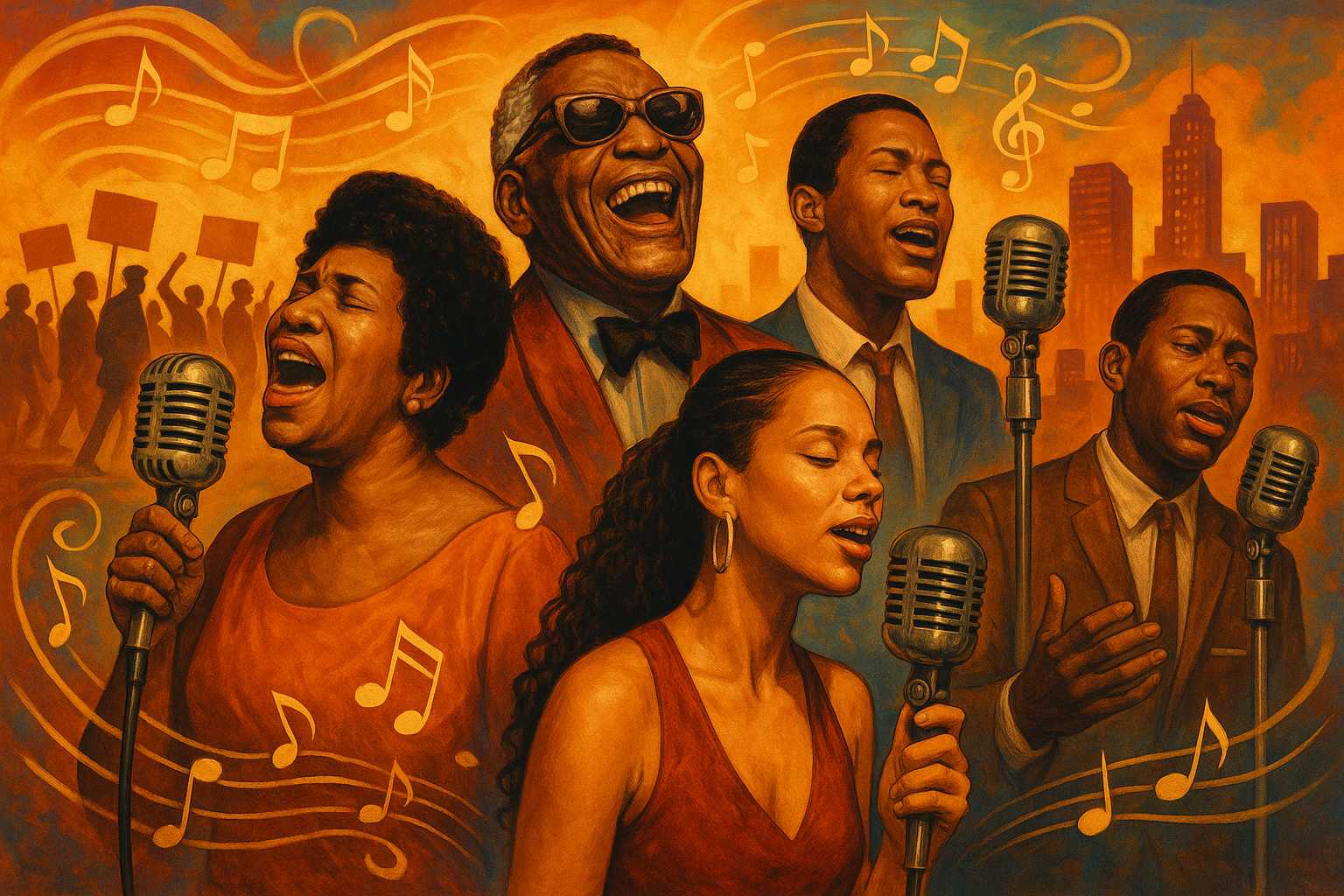By Theo – The Music Maestro
When you hear a powerful voice belting from the depths of heartache, triumph, or longing, chances are you’re listening to soul music. Soul is much more than a genre—it’s a testament to the resilience and unity of the human spirit. Born in the crucible of 1950s America, soul emerged as a fusion of gospel’s fervor, rhythm and blues’ rhythms, and the lived experiences of Black Americans amid profound societal change. Over decades, this music has uplifted communities, propelled social movements, and inspired generations, weaving a sonic tapestry felt far beyond its roots.
Soul’s Roots: Voices for Change
At its core, soul music draws strength from gospel’s spiritual optimism and the blues’ honest storytelling. Artists like Ray Charles, Aretha Franklin, and Sam Cooke poured faith, pain, and hope into every lyric, connecting deeply with listeners due to sheer authenticity. During the Civil Rights era, songs such as “A Change Is Gonna Come” and “Respect” became anthems of struggle and empowerment, uniting people across divides and fueling action for equality.
Universal Language of Emotion
What sets soul apart is its ability to transcend barriers—racial, national, or generational. Whether you’re in Detroit, Lagos, London, or Tokyo, the sincerity in Marvin Gaye’s “What’s Going On” or Otis Redding’s “Try a Little Tenderness” resonates universally. The power of soul lies in those expressive vocals and stirring melodies that tug at the heart. It gives voice to personal and collective stories of love, loss, injustice, and hope.
Modern Echoes: Soul’s Enduring Impact
Even as the sound has evolved, blending into neo-soul, R&B, and hip-hop, its essence remains potent. Today’s artists—think Alicia Keys, Leon Bridges, or H.E.R.—honor tradition while forging new paths, using soul to reflect and unite modern audiences. Meanwhile, the genre’s DNA pulses through countless global musical forms, reminding us of our shared humanity.
Connecting Generations and Communities
Soul music is more than a backdrop to history; it’s a living, breathing connector. Its influence threads through family gatherings, protest marches, and solitary nights alike. In every era, soul gives us a sonic language to grieve, to celebrate, and, above all, to hope together. It’s a reminder that through music, our hearts beat in rhythm—no matter who or where we are.
So next time you let a soul classic wash over you or discover a contemporary artist channeling that same spirit, remember: you’re tapping into a lineage of sound that links past, present, and future, echoing the enduring power of music to unite us all.


Leave a Reply